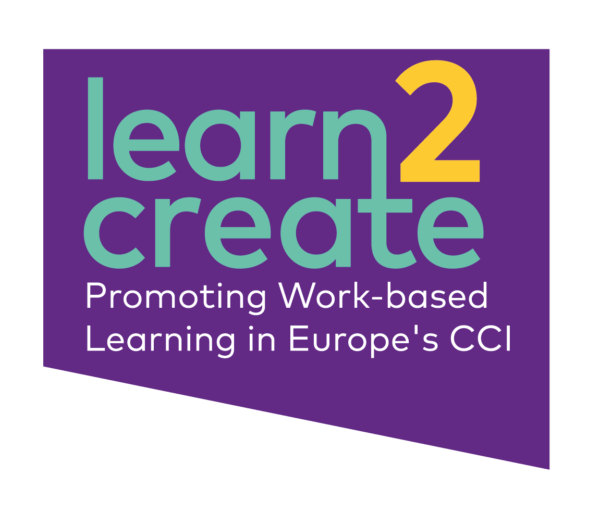The fourth international meeting of the partners of the “Learn to Create – promoting Work-based Learning in Europe’s Cultural and Creative Industries” project, was meant to take place in Matera (Italy) and simultaneously be an opportunity to summarise the training week of the international group of vocational teachers. Unfortunately, due to the pandemic restrictions, it had to be organised in an online form – it took place on December 4th, 2020.
Representatives of all partner organisations participated in the meeting. After the summary of the previous stages of the project and the progress of the accomplishment after the September online test meeting (more about it here), a representative of Rinova (UK), as the leader of the implementation of the second result of the research, presented the final version of the educational programme for teachers of creative professions, designed as part of the project. Then, a representative of Dimitra, the Greek partners responsible for designing the educational platform, presented the platform in itself, and its content range.
However, the discussion was dominated by issues associated with the necessity to move the vocational teachers’ training (C1) to January, and the organisation of the event itself. The partners also discussed ideas for the implementation of national workshops – the test phase of the platform.
At the end of the meeting, the following stages of project work were discussed – two guidebooks, one for the trainers, and the other for employers of the cultural and creative sectors (Materhub and Innogate are its leaders).
The first guidebook is directed to teachers and trainers engaged in the support and promotion of “work-based learning” in the cultural and creative industries (CCI). It is a textbook for the organisations and trainers who hold training dedicated to vocational teachers in the broad sense. It can be also used by other people cooperating with everyone engaged in the process of implementation and promotion of WBL in CCI. It consists of a textbook, which is integrated with open online educational resources, providing help and information concerning the cooperation of all engaged in the promotion of WBL in CCI (including students and business partners).
In turn, the guidebook for employers of the creative and cultural sectors is meant to help employers, conducting business in the cultural and creative sectors (CCI), to better understand how to use and structurise possibilities of work-based learning (WBL) in their organisations or companies, as well as how to recruit and help interns/apprentices pursuing the WBL path in their enterprises. The guidebook focuses on micro-companies and freelancers, as they occur the most in cultural and creative sectors, as well as on small and medium-sized enterprises, which also function in these sectors, and maybe have an even bigger potential and possibilities to take the role of ‘hosts’ of the WBL process. The guidebook presents an approach based on mentoring for these employers, for them to stimulate skills associated with self-employment, and entrepreneurial competencies during the WBL process.
During the meeting, issues associated with utilizing, monitoring, and providing quality in the implementation of the project, as well as those associated with current management, reporting, and promoting the project.
More about the project here.

